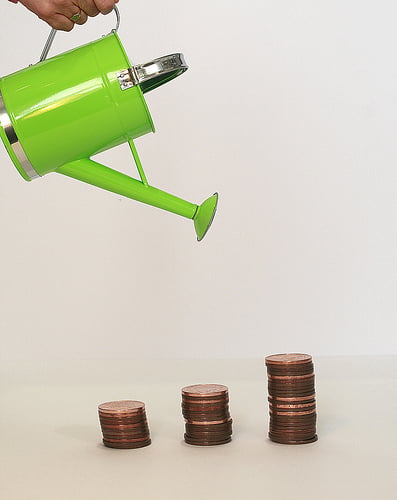

Features
Responsible investment terms: what is sustainable investment?
Sustainable investment holds the key to balancing the needs of people and the planet, whilst engaging in a prosperous financial opportunity.
The term ‘sustainable’ is being used ever-more frequently in everyday life. But what does it actually mean? And more importantly, why invest this way?
When Blue & Green Tomorrow asked over 5,000 private investors whether they would be willing to switch to more ethical or environmental investing, only 8% said they would. Sixty-four per cent said they wouldn’t because of a lack of understanding around the subject, including concerns about the return on investment.
So a good place to start would be to explore what sustainable investment actually is. Without getting their minds around the concept first, investors won’t feel as motivated to engage with it.
Let’s start with the definitions, supplied by the Oxford English Dictionary:
Sustainable = “Designating a natural resource which is exploited in such a way as to avoid its long-term depletion.”
Investment = “The conversion of money or circulating capital into some species of property from which an income or profit is expected to be derived in the ordinary course of trade or business.”
So in principle, sustainable investing is the integration of environmental, social and governance (ESG) factors into the decision-making and investment analysis of a company or private investor. It offers investors the opportunity to capture the long-term investment returns associated with companies that work within sustainable business models who integrate these ESG factors.
You could see it as investing in areas that make a positive difference to the world, as well as avoiding some of the most damaging industries.
Why sustainable investment is smarter and better
It means that you’re part of a great financial opportunity.
In recent years, there has been an encouraging increase in companies that recognise the financial benefits associated with sustainability performance. With global, financial, social, political and environmental factors becoming the core concerns of sustainability, now is the time to take advantage of this seismic shift.
The sustainability sector in Europe for example is growing rapidly and there are statistics to prove it. A report last year by the European Sustainable Investment Forum (Eurosif) found that high net-worth individuals in Europe had strengthened their commitment to sustainable investment. It reported that there had been a 60% increase in sustainable investments in Europe over the past two years, to the point where €1.15 trillion had been invested into sustainability.
Sustainable themes that have experienced the largest growths in investment include clean energy, water, climate change, green technology and human wellbeing. These themes are attuned to the times we are living in now; capture these investment opportunities while they’re hot.
It means that you’re part of a greater cause
Sustainable investing means that the profits you are receiving have not contributed to dangerous operations which can negatively affect communities, livelihoods and the environment.
“People need to recognise that if they don’t think about where they invest their money, it may get used for things that they find morally unacceptable”, two investors – Nikky Wilson and Steve Connelly – recently told Blue & Green Tomorrow.
“There is an alternative – by investing ethically everyone can do a little bit to challenge what is a very unjust world, largely funded by ordinary people’s money.”
Sustainable investment means a contribution to human wellbeing, not just for now, but for your children and grandchildren’s futures. It means making positive contributions to local community developments and safer ways of living in the future. The more companies that improve the management of their sustainability issues, the stronger the rise in responsible investment and financial markets will become, pushing sustainability to the fore.
Engaging in environmental performance allows your company to take advantages in the opportunities across the global marketplace where environmental issues have become an increasing matter of importance and which shall continue to strengthen.
Evidence supplied by the now-defunct DB Climate Change Advisers in a report called Sustainable Investing: Establishing Long-Term Value and Performance showed that companies that factored sustainability into their investments performed better on the stock market.
“Sustainable investing can be a clear win for investors and for companies”, said Mark Fulton, global head of climate change investment research at Deutsche Bank, in his editorial letter at the beginning of the report.
Sustainable investment reaps long-term financial rewards. A little confidence in this important sector ought to pave the way for a more enlightened and prosperous investment journey.
Blue & Green Tomorrow has interviewed a number of specialist ethical financial advisers in the past, and they’re located all across the country. Have a look here to find the one nearest to you.
Further reading:
Sustainable investment flourishes amongst European high net-worth individuals
Responsible investment terms: what is SRI?


 Environment12 months ago
Environment12 months agoAre Polymer Banknotes: an Eco-Friendly Trend or a Groundswell?

 Features11 months ago
Features11 months agoEco-Friendly Cryptocurrencies: Sustainable Investment Choices

 Features12 months ago
Features12 months agoEco-Friendly Crypto Traders Must Find the Right Exchange

 Energy11 months ago
Energy11 months agoThe Growing Role of Solar Panels in Ireland’s Energy Future





























